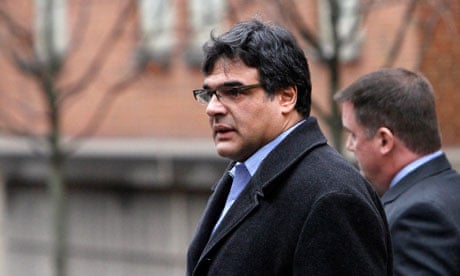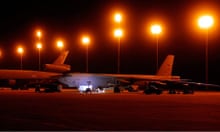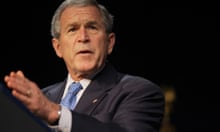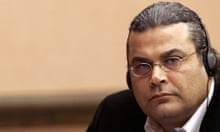The former CIA officer John Kiriakou was sentenced Friday to more than two years in prison, by a federal judge who rejected arguments that he was acting as a whistleblower when he leaked a covert officer's name to a reporter. A plea deal required the judge to impose a sentence of two and a half years. US district judge Leonie Brinkema said she would have given Kiriakou much more time if she could.
Kiriakou's supporters describe him as a whistleblower who exposed aspects of the CIA's use of torture against detained terrorists. Prosecutors said Kiriakou was merely seeking to increase his fame and public stature by trading on his insider knowledge. The 48-year-old Arlington resident pleaded guilty last year to violating the Intelligence Identities Protection Act. No one had been convicted under the law in 27 years.
Kiriakou was an intelligence officer with the CIA from 1990 until 2004. He served overseas and at headquarters in Langley. In 2002, Kiriakou played a key role in the agency's capture of the al-Qaida terrorist Abu Zubaydah in Pakistan. Abu Zubaydah, who was waterboarded by government interrogators, revealed information that led to the arrest of "dirty bomb" plotter Jose Padilla and exposed Khalid Sheikh Mohamed as the mastermind of the 11 September 2001 terror attacks.
Accounts conflict, however, over whether the waterboarding was helpful in gleaning intelligence from Zubaydah, who was also interrogated conventionally.
Kiriakou, who did not participate in the waterboarding, expressed ambivalence in news media interviews about waterboarding, but ultimately declared it was torture. His 2007 interviews about the interrogations of Abu Zubaydah were among the first by a CIA insider confirming reports that several detainees, including Abu Zubaydah, had been waterboarded.
In court papers, prosecutors said the investigation of Kiriakou began in 2009 when authorities became alarmed after discovering that detainees at Guantanamo Bay possessed photographs of CIA and FBI personnel who had interrogated them. The investigation eventually led back to Kiriakou, according to a government affidavit. Prosecutors said Kiriakou leaked the name of a covert operative to a journalist, who subsequently disclosed it to an investigator working for the lawyer of a Guantanamo detainee.
Kiriakou was initially charged under the first-world-war-era Espionage Act, but those charges were dropped as part of a plea bargain.






Comments (…)
Sign in or create your Guardian account to join the discussion